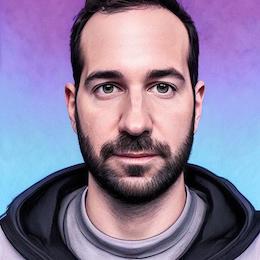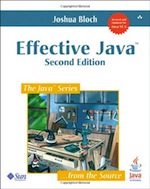
Effective Java by Joshua Bloch (creator of Java Collections Framework) is a book on programming. It contains examples on common mistakes people make, best practices for software design, Java gotchas and introductory material on new features of Java language.
Although some parts of the book are specific to Java, in general it contains advice that would be useful in any object oriented language. Even tough it’s heavy in content and requires your full mental attention, it is organized in chapters containing several suggestions on a specific topic that make it easier to read.
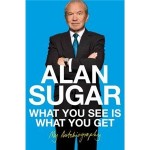
Alan Sugar’s autobiography is quite peculiar in the sense that it’s written as if he is talking to you. You’ll hear his voice as you read the book which makes it more sincere.
I was interested in this book mainly because he’s a self-made millionaire from a very poor family in East London.
In this book, you’ll learn about his journey in business as he starts from being a salesman to owning a public company, his success as a retailer and manufacturer, his involvement in the football club Tottenham Hotspur, his involvement in The Apprentice and how he got knighted and appointed to House of Lords.
Steve Jobs was my personal hero, his biography is a great reflection of his attitude and perspective on life. Here are my notes from the biography of Steve Jobs:
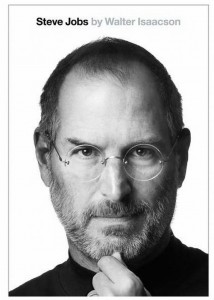
On simplicity and focus
- One of Jobs’s great strengths was knowing how to focus. Deciding what not to do is as important as deciding what to do he said. He had the power to focus like a laser beam.
- We needed to limit what the device itself would do. Instead we put that functionality in iTunes on the computer.
- Jobs’s intensity was also evident in his ability to focus. He would set priorities, aim his laser attention on them, and filter out distractions. He attributed his ability to focus and his love of simplicity to his Zen training. It honed his appreciation for intuition, showed him how to filter out anything that was distracting or unnecessary, and nurtured in him an aesthetic based on minimalism.
On his attitude
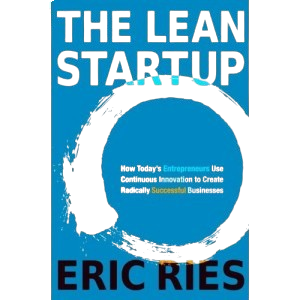
The Lean Startup by Eric Ries is a book about his approach to building products and creating companies.
One concept I embraced from this book is to view your startup is a set of experiments to systematically figuring out the right things to build. It involves defining your startup as a set of hypotheses you need to test, and try to be efficient in finding out what works and what doesn’t. An important aspect of Lean Startup methodology is experimentation. It mentions some leap of faith assumptions startups need to test, such as:
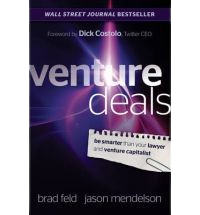
I was hesitant to buy Brad Feld’s new book on venture capital after being disappointed by “Do More Faster”. However, this book has proven to be very informative and valuable read. As an early employee in a venture funded startup, my motivation in reading this book was to get more familiar with terms and technical details of a funding round.
Venture deals, as the name suggests, is all about raising venture capital, and explains a term sheet in great detail, and provide guidance on which terms to focus on. It reads like a school textbook from time to time.
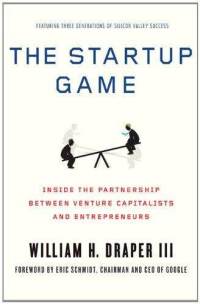
William Draper is a prominent American venture capitalist, and his book “The Startup Game” is partly an autobiography, partly a book on venture capital and entrepreneurship.
He starts the book with an overview of how venture capital works: “The limited partners put in the money, the general partners do the work”. He briefly talks about angels, private equity firms and venture debt.
The next section is for budding entrepreneurs. It includes traits of successful entrepreneurs according to Draper: brains and education, energy and passion, expertise, vision, integrity, humor
Movies have an important place in my life. Since I’m not a man of words, I collect movie quotes instead. Note that some of these quotes are meaningful only if you have watched the movie.
Fight Club
Losing all hope was freedom.
The things you own end up owning you. “It’s only after you’ve lost everything,” Tyler says, “that you’re free to do anything.”
We’re the middle children of history, man. No purpose or place. We have no Great War. No Great Depression. Our Great War’s a spiritual war… our Great Depression is our lives. You’re not your job. You’re not how much money you have in the bank. You’re not the car you drive. You’re not the contents of your wallet. You’re not your fucking khakis. You’re the all-singing, all-dancing crap of the world. I say never be complete. I say stop being perfect Self improvement is masturbation.

Derek Sivers is one of my favorite bloggers. Not only did he read a lot of books, but took time to take notes and share them on his site. It’s an inspiring act.
I asked him how he found time to do all that, and he said “I make time for things I like”. Fair enough!
When Derek announced that he wrote a book, I didn’t hesitate to order it right away. It’s a short book(let) consisting of 75 pages. He writes about his experience with starting and running his company CDBaby, and shares his view on life and what he learned along the way.

Eric Raymond starts with the history and culture of hackerdom. He says hackers build things. He reflects upon his development of fetchmail and observations on open-source development of Linux community. It’s composed of five essays overall, with the essay “The Cathedral and The Bazaar” being the highlight of the book. It contains great advice for software engineers. Here are some gems from the book:
- Given enough eyeballs, all bugs are shallow.
- You often don’t really understand the problem until after the first time you implement a solution. So if you want to get it right, be ready to start over at least once.
- Adding more programmers to a late project makes it later.
- Perfection is achieved not when there is nothing more to add, but rather when there is nothing more to take away.
- An important trait of the great ones is laziness. They know that you get an A not for effort but for results, and that it’s almost always easier to start from a good partial solution than from nothing at all.
- Smart data structures and dumb code works a lot better than the other way around.
- You have to listen to your customers.
- The best hacks start out as personal solutions to the author’s everyday problems.
- In gift cultures, social status is determined not by what you control but by what you give away.
He concludes by saying “You can learn language features from books, but the mind-set that makes that knowledge into a living skill be learned only by practice and apprenticeship. What will do it is (a) reading code and (b) writing code.”
I attended the inaugural Silicon Milkroundabout event along with hundreds of developers to get to know some of the startups in London’s technology scene.
This event reminded me of career fairs at Georgia Tech, with hundreds of companies seeking to recruit the brightest students. Career fairs were very brutal in the US, students would wear suits, engineers from companies would ask technical questions right on the spot, even make you write code on a piece of paper while standing up in line.








